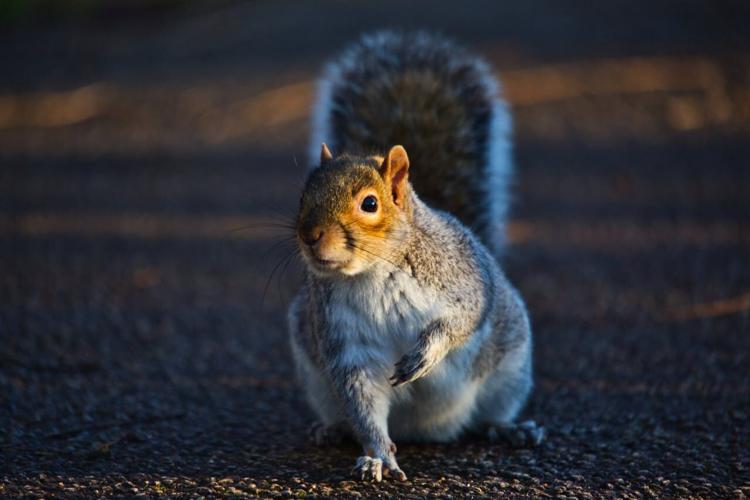
(Photo by Altaf Shah via Pexels)
By Filipa Gaspar
Gray squirrels "feel safer" around road noise, a study found.
Research from the University of Exeter reveals the paradoxical ways gray squirrels balance risk and foraging in urban environments.
Researchers found that squirrels felt safer from predators near roads when noise levels were consistently loud.
Human disturbance has a significant impact on the behavior and habitat use of urban wildlife but in some situations, urban gray squirrels may actually feel safer from predators where our activity is high.
Researchers measured how much food squirrels left behind in standardized food patches in different places - reflecting how dangerous they perceived their local surroundings to be.
They found that squirrels felt safer from predators near roads when noise levels were consistently loud.

Brett Jordan
However, squirrels also perceived foraging as more dangerous when the noise was less consistent.
The findings highlight the complex trade-offs squirrels face in urban environments when balancing the risks and benefits associated with living alongside humans.
Dr. Sasha Dall from the University of Exeter said: “Our findings suggest human activities have a double-edged impact on urban wildlife like the gray squirrel.
"While human disturbance can offer reduced risk from predators in some situations, it can also increase it in others. Squirrels have to adapt to these challenges by altering their foraging behaviour and habitat use.
“We now need to explore the variations in food supply, reproductive success, and survival rates of gray squirrels across different levels of urbanization to better understanding the impact human disturbance has on them.”
The research shows how urban features can reshape the ‘landscape of fear’ in urban wildlife and that not all human disturbance is equal.

(Photo by Francesco Ungaro via Pexels)
Researchers offered squirrels the choice between ‘safe’ (under cover) and ‘risky’ (out in the open) artificial feeding patches.
They found that the difference in food eaten from safe and risky foraging patches decreased closer to roads, particularly where noise was loud but steady. This suggests squirrels perceive these sites as lower in predation risk.
Dr. Kristin Thompson, who conducted this research as part of her PhD at the University of Exeter, said: “These results seem counterintuitive, but show that whilst roads can present a risk of being hit by a vehicle, squirrels living near roads appear to perceive the risk of being caught by a predator as lower, if road noise is consistent.
"This ability to navigate complex risks is an example of why gray squirrels are so successful in urban spaces.”
Dr. Sasha Dall was funded by a Royal Society Leverhulme Trust Senior Research Fellowship.
The paper titled ‘Urban noise and its predictability moderate perceived risk associated with roads in gray squirrels’ is published in Oikos.























(0) comments
Welcome to the discussion.
Log In
Keep it Clean. Please avoid obscene, vulgar, lewd, racist or sexually-oriented language.
PLEASE TURN OFF YOUR CAPS LOCK.
Don't Threaten. Threats of harming another person will not be tolerated.
Be Truthful. Don't knowingly lie about anyone or anything.
Be Nice. No racism, sexism or any sort of -ism that is degrading to another person.
Be Proactive. Use the 'Report' link on each comment to let us know of abusive posts.
Share with Us. We'd love to hear eyewitness accounts, the history behind an article.